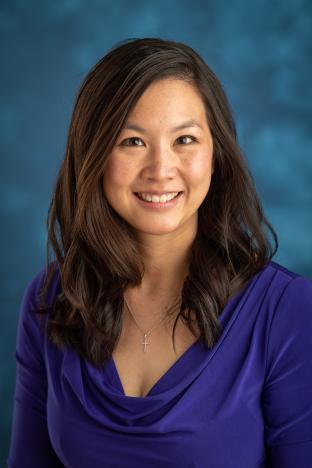Biography
Eileen received her undergraduate chemical engineering degree from the Cooper Union and her combined MD/PhD from SUNY Stony Brook University through the Medical Scientist Training Program. She then joined the University of Michigan and completed her internal medicine residency and gastroenterology fellowship through their fast-track research pathway. She recently joined faculty with a dual appointment at the University of Michigan and the VA Ann Arbor Healthcare System.
Research Interests
Dr. Carpenter’s recent research accomplishments include establishing a pipeline using endoscopic fine needle biopsies of pancreatic tumors for a wide variety of techniques, including single-cell RNA sequencing, mass cytometry, and organoid culture. The Carpenter lab is currently focused on extending existing pipelines to study chemoresistance using longitudinal matched samples in patients pre- and post-chemotherapy, with the goal of identifying new immunotherapeutic targets to overcome chemo-refractory disease in pancreatic ductal adenocarcinoma.
Research Opportunities for Rotating Students
Project 1: Assesing Immunoreactivity in PDAC in TIGIT: Using organoids cultures from primary PDAC tissue, we have found differential immunoreactivity responses to co-culture of PDAC organoids with autologous immune cells, and have observed that immunoreactivity can be modulated with the addition of immune checkpoint inhibition. Using this platform, we propose to further investigate how TIGIT is modulated in the PDAC microenvironment and develop a preclinical model to identify which patients may benefit from anti-TIGIT combination immunotherapy. Hypothesis: We propose to establish a preclinical precision medicine workflow to identify which patients may benefit from TIGIT combination immunotherapy using patient-derived organoids cultured with autologous immune cells. Project 2: The Role of Myeloid Cells in chemoresistance in PDAC. We have found that culturing organoids with conditioned media from PDAC myeloid cells modulates proliferation in a patient-specific manner. We will leverage this assay, as well as multi-omic technologies with which we have expertise, to characterize the mechanisms of myeloid-mediated tumor progression in PDAC. Hypothesis: Characterize the contribution of myeloid cells to tumor pathogenesis on a patient-specific basis using a co-culture system of patient-derived organoids and myeloid cells.
Other Info
Office Location
- Med Sci II, Room 7712A
Lab Location
- Med Sci II, Room 7703
Administrative Assistants
- Pam Varga; [email protected]; 734-647-3942
- Debbie Tanton; [email protected]; 734-647-2964

